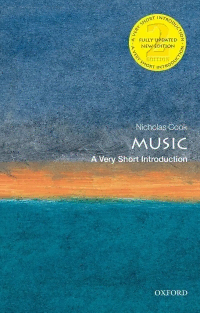Table Of ContentCover page Page: i
Halftitle page Page: i
Series page Page: ii
Title page Page: xiii
Copyright page Page: xiv
Contents Page: xv
Acknowledgements Page: xvii
List of illustrations Page: xix
Introduction Page: 1
Chapter 1 Music in the moment Page: 3
Growing older together Page: 4
Knowing and playing Page: 12
Music as a political act Page: 21
Chapter 2 Thinking in music Page: 28
Music as culture Page: 29
Writing it to hear it Page: 39
The music laboratory Page: 47
Chapter 3 The presence of the past Page: 53
Express yourself Page: 54
Monuments in sound Page: 63
Beyond authorship Page: 73
Chapter 4 Music 2.0 Page: 85
Music, technology, lifestyle Page: 86
Digital participation and musical style Page: 94
Selling sounds Page: 103
Chapter 5 Music in a global world Page: 111
Music and globalization Page: 112
World musics Page: 122
Last words Page: 129
References Page: 135
Further reading Page: 146
Index Page: 151
Early Music Page: 155
Film Music Page: 156
Description:Very Short Introductions: Brilliant, Sharp, Inspiring The world teems with different kinds of music - traditional, folk, classical, jazz, rock, pop - and each type of music tends to come with its own way of thinking. Drawing on a wealth of accessible examples ranging from Beethoven to Chinese zither music, this Very Short Introduction considers the history of music and thinking about music, focussing on its social and cultural dimensions. Nicholas Cook balances the Western Classical traditions within the context of many other musical cultures in today's world, tracing the way in which their development since the eighteenth century has conditioned present-day thinking and practice both within and beyond the West. He also considers the nature of music as a real-time performance practice; the role of music in contexts of social and political action; and the nature of musical thinking, including the roles played in it by instruments, notations, and creative imagination. In this new edition Cook explores the impact of digital technology on the production and consumption of music, including how it has transformed participatory music-making and the music business. He also discusses music's position in a globalized world, from the role it played in historical processes of colonisation and decolonisation to its present-day significance as a vehicle of cross-cultural communication. ABOUT THE SERIES: The Very Short Introductions series from Oxford University Press contains hundreds of titles in almost every subject area. These pocket-sized books are the perfect way to get ahead in a new subject quickly. Our expert authors combine facts, analysis, perspective, new ideas, and enthusiasm to make interesting and challenging topics highly readable.

